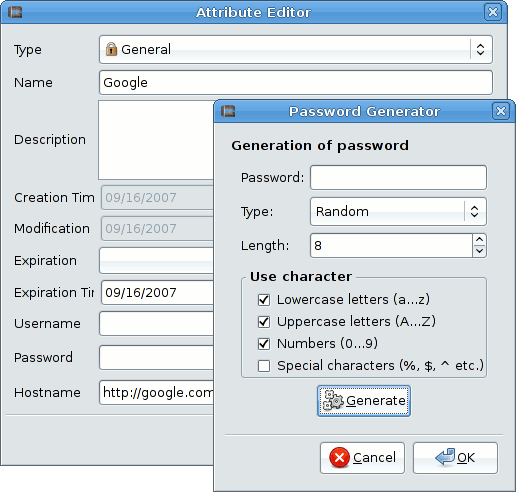Deleting a file is a pretty simple task, right? Whether you're in a GUI or on the command line, it's really simple to delete a file. Once you've deleted it, it's gone. Except - no it's not.
When you delete a file, you just remove its index entry from your filesystem. You won't immediately be able to find it, but the data is still there and could potentially still be …
Click through to read more...
Okay, so you'll probably still forget them. But with GPass, you can find them again in an instant.

GPass is a quick tool that lets you type up a list of passwords, locked away with a master password. It is easy enough to use: Just click the Add button, and give it a name and a password. If you want, you can set the password to expire so that GPass …
Click through to read more...
 Apache is the world's most popular web server and is a very good piece of software. It isn't however, the only choice of free software and open source web server solutions and it's easy to overlook lightweight alternatives to Apache.
Apache is the world's most popular web server and is a very good piece of software. It isn't however, the only choice of free software and open source web server solutions and it's easy to overlook lightweight alternatives to Apache.
One such alternative is lighttpd. Here's what its official site says about the project:
Security, speed, compliance, and flexibility -- all of these describe lighttpd (pron. lighty) which is …
Click through to read more...
If you deal with Macs at all, you might be curious as to whether Linux is capable of dealing with disks and drives formatted for Mac OS X. The answer is - yes, in most cases, and it is actually quite easy to get your Mac-formatted stuff mounted on your Linux system with read-only, and in most cases read-and-write, support.
In most modern distributions, the capabilities for mounting media formatted …
Click through to read more...

